As Israel’s war in Gaza continues, more people than ever are speaking up about the historic dispossession of the Palestinian people. Many pro-Israel organizations have presented Jewish people as holding a monolithically Zionist opinion, and the Jewish voices most raised up are supporters of the Western consensus on Israel-Palestine. This, however, does not track with what is happening with Jews across the diaspora, thousands of whom have been vocally demanding a ceasefire and organizing to take action. They are part of the long Jewish tradition of criticizing Israel and Zionism, which has existed as long as the idea of Israel and draws on many different strains of Jewish thought, theology, and politics.
In an effort to honor the diversity of Jewish opinions on Israel-Palestine, I have put together a list of Jewish authors who offer a decidedly critical take on the State of Israel. The list does not cover all Jewish anti-Zionist thinkers, much less the full range of works on Israel-Palestine. Each of these authors (or groups of authors) are distinct from one another, each with their own interpretive perspective on the conflict and its possible solutions, owing to the fact that with every two Jews you’ll likely find three opinions.
*
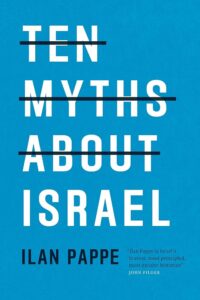
Ten Myths About Israel – Ilan Pappe (Verso, 2017)
From notorious Israeli socialist “New Historian” Ilan Pappe, Ten Myths About Israel is one of the most accessible books ever written on this topic. Pappe gained a reputation for his stark anti-Zionism on the Jewish left, something that has made him persona non grata in his home country and pushed him to move abroad. Pappe funnels his vast historical knowledge of the politics of Israel-Palestine into ten commonly repeated “facts” that are often used as a self-narration for Israel’s justifications for its military behavior, inevitability, or its claims that demographic superiority in Israel is the heart of its model for safety. Pappe’s short conversations help to reframe the entire history and open a window into possible futures outside of the occupation and dispossession of Palestinian land. These include chapters challenging the idea that Israel is the “only democracy in the Middle East,” the notion that Israel was a largely good-faith actor during the Oslo peace process, or that a two-state solution is the only viable one.
*
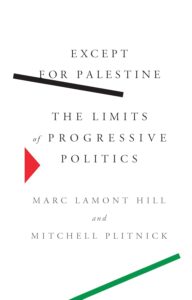
Except for Palestine: The Limits of Progressive Politics – Marc Lamont Hill and Mitchell Plitnick (The New Press, 2022)
Named after the common phrase about synagogues and Jewish institutions—that they are “progressive, except for Palestine”—this book by journalist Marc Lamont Hill and writer and activist Mitchell Plitnick takes a similar approach to Pappe by tracing through different misconceptions about the conflict, such as what it means to say “from the river to the sea” and what a single, democratic state in the region could look like. Easy to read and tied to known stories and characters, such as the claims commonly made about the Boycott, Divestment, and Sanctions (BDS) movement, Trump’s recent role in accelerating the crisis, and who is responsible for the condition of Gaza, Except for Palestine is a great crack at why Israel ends up dividing so many in the Jewish community and beyond.
*
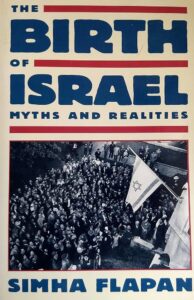
The “New Historians”
A bit of a cheat for a “top ten” list: this is a category of authors that should become an important entry point into this history. In the 1990s, a new class of historians emerged in Israel who now had access to government records about the state’s founding. What they revealed challenged Israel’s official narratives, revealing war crimes and intentional ethnic cleansing of Palestinians. Those revelations completely changed the discussion on Israel’s future, contributed to the growth of post-Zionism, and created a canon of foundational texts on the conflict. These authors include Benny Morris, Ilan Pappe, Tom Segev, Simha Flapan, and Avi Shlaim, each of whom have essential early books about Israel’s founding wars. The Ethnic Cleansing of Palestine by Ilan Pappe, The Birth of the Palestinian Refugee Problem, 1947–1949 by Benny Morris, Israel and Palestine: Reappraisals, Revisions, Refutations by Avi Shlaim, A State at Any Cost: The Life of David Ben-Gurion by Tom Segev, and The Birth of Israel: Myths and Realities by Simha Flapan are just a few of the important volumes that the “New Historians” have contributed.
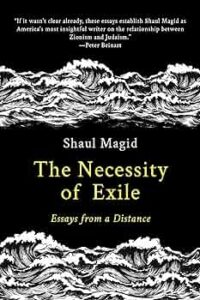
The Necessity of Exile: Essays from a Distance – Shaul Magid (Ayin Press, 2023)
No scholar has chronicled the changes in American Jewishness more succinctly than Shaul Magid. In this most recent collection of essays, he takes his scalpel to the American Zionist consensus and unpacks its functions, costs, and future. Magid’s own history moving into, and out of, Haredi communities and formerly living in Israel gives him a distinct vantage point for this discussion, as does his deep knowledge of hasidism, the Jewish far-right, kabbalah, and the American Jewish Establishment (as Peter Beinart is known to call it). This book features essays on separating Judaism from Zionism, Magid’s own doomed relationship to Zionism, and religious alternatives to the nation state. Magid also introduces the concept of “counter-Zionism” as a new way of thinking critically about, and thinking about, historical Zionism, without incurring some of the backlash associated with anti-Zionism. While these terms are not fixed by any means—and people often mean different things when they say “anti-Zionism” just as when they say “Zionism”—Magid’s concept matches what a lot of people refer to as post-Zionism or simply non-Zionism, to wish the people of Israel well while walking away from the notion that exclusivist Jewish state building is a good solution for either Jewish safety or political ethics. Instead, this in practice would look more like a “one-state solution” or whatever the most practical and morally sound solution could be in our current political schema. More than anything, this belief walks away from the notion that Zionism can any longer be an ideological force in solving the problems for the people who now live in historic Palestine, and that a new civic formulation needs to guide its future if we are to ever see a positive outcome.
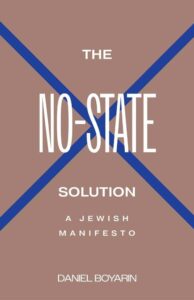
The No-State Solution: A Jewish Manifesto – Daniel Boyarin (Yale University Press, 2023)
Also released in 2023, Boyarin’s book challenges Zionism as a force of continuity in Jewish life and, like Magid, sees diaspora as an essential piece in constructing what is sacred in Jewish tradition and experience. Boyarin’s anti-Zionism imagines Jewish life beyond its centering in simple geographic space, and largely draws from traditions like the Jewish Labour Bund’s concept of “dokyat,” or “hereness,” meaning we remain a Jewish community wherever they are. Boyarin traces through a number of alternatives, but also synthesizes a great bit of the diasporic challenge that the young Jewish left is offering to Zionism.
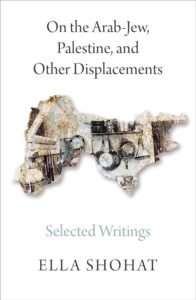
On the Arab-Jew, Palestine, and Other Displacements: Selected Writings of Ella Shohat (Pluto Press, 2017)
Mizrahi scholar Ella Shohat presents an incredibly provocative challenge to Israeli narratives, particularly around the state’s mythology about the immigration of Jews from Arab countries. Shohat’s focus is, as the title of one of her essays reveals, “Zionism From the Standpoint of Its Jewish Victims.” She is particularly interested in how Zionism’s quest for a singularly represented Jewish people forced many Jews to sublimate their own cultures in favor of a newly establish Ashkenazi norm. Shohat’s work directly confronts the reigning logic of Israel’s right-wing government, which often points to Mizrahi support as a claim to its legitimacy.
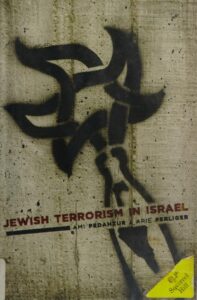
Books about the Israeli Far-Right
As Israel lurches further into the far-right, and as Religious Zionism and the Settlement Movement gain even more power, studies on the Israeli far-right may be the most important analysis available to understand Israel’s future. Among these, the leading scholar may be American-Israeli scholar Ami Pedazhur, whose books The Triumph of Israel’s Radical Right and Jewish Terrorism in Israel are straightforward and easily devoured histories of the fascistic currents in the Israeli right. For a deeper history, The Jewish Radical Right by Evan Kaplan, The Rise of the Israeli Right: From Odessa to Hebron by Colin Shindler, and the over thirty-years-old The Ascendance of Israel’s Radical Right by now deceased journalist Ehud Sprinzak are all essential reads. For the American connection to the Israeli far-right, you could do no better than Shaul Magid’s 2022 intellectual biography Meir Kahane: The Public Life and Political Thought of an American Jewish Radical, which tells the story of Jewish fascist leader Meir Kahane and how he helped to reshape Israeli politics despite being an American original.

Wrapped in the Flag of Israel: Mizrahi Single Mothers and Bureaucratic Torture – Smadar Lavie (University of Nebraska Press, 2018)
Smadar Lavie’s groundbreaking study alternates between her own experience as a single mother in Israel and the stories of women she meets while conducting her research. Like Shohat, Lavie presents a counter-narrative to Israel’s story about Mizrahi residents and suggests the important allegiances that could be made between Mizrahim and Palestinians in the fight against systemic injustice.
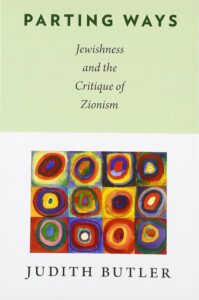
Parting Ways: Jewishness and the Critique of Zionism – Judith Butler (Columbia University Press, 2013)
Now a classic, philosopher Judith Butler’s critical look at Zionism and their effort to disentangle the two traditions helped to establish the modern criticism of Israel. Butler’s Jewishness is decisively secular and they present the Jewish tradition as one tied directly to the universalism of the communities they were nestled in, aligning Jewishness with subalternity. The book remains biting both for its definitional relationship to Jewish identity, particularly one that presents a secular alternative to Zionism, and for the outrage it sparked amongst Jewish civic institutions.
*
Shane Burley is a writer and journalist based in Portland, Oregon. He is the author of Why We Fight: Essays on Fascism, Resistance, and Surviving the Apocalypse (AK Press, 2021) and Fascism Today: What It Is and How to End It (AK Press, 2017), and the editor of No Pasaran: Antifascist Dispatches from a World in Crisis (AK Press, 2022). His work has been featured in places like NBC News, Al Jazeera, The Daily Beast, The Baffler, Jacobin, Haaretz, Jewish Currents, Tikkun, In These Times, and Oregon Humanities. He is the co-author of the forthcoming book Safety Through Solidarity: A Radical Guide to Fighting Antisemitism (Melville House Books, 2025). He can be found on X @shane_burley1 and Instagram @shaneburley.
This post may contain affiliate links.







